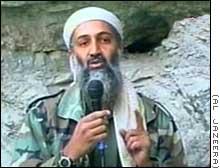


|

|
|
|
Home |
The Mil & Aero Blog
Rule-based expert system may help forecast terrorist behavior and attacksTuesday, February 26, 2008  Posted by John Keller News on the terror front comes today from University of Maryland, where researchers are using fundamentals of artificial intelligence to create an experimental rule-based expert system that may help U.S. authorities forecast potential terrorist attacks and terrorist behavior. With funding from the U.S. Air Force Office of Scientific Research in Arlington, Va., scientists from the University of Maryland Institute for Advanced Computer Studies (UMIACS) created the SOMA Terror Organization Portal, otherwise known as STOP, which also may eventually help network anti-terrorism experts around the world who are analyzing terrorist information. SOMA stands for stochastic opponent modeling agents, which is a logical-statistical reasoning framework that uses data about past terrorist group behavior to formulate rules about the probability of terrorist acts and behavior, according to an article at Physorg.com entitled STOP terrorism software. Writes Physorg.com: SOMA has generated tens of thousands of rules about the likely behavior of each of about 30 groups (including major terrorist organizations such as Hezbollah, Hamas, and Hezb-I-Islami). “SOMA is a significant joint computer science and social science achievement that will facilitate learning about and forecasting terrorist group behavior based on rigorous mathematical and computational models,” said V.S. Subrahmanian, computer science professor and UMIACS director who heads the STOP project. Significantly, the STOP project enables users to mark rules as useful or not, and leave comments about the rules, which might be able to help refine the system organically over time. This sounds like a great tool in the war on terror, but I continue to worry about an over-reliance on technology like artificial intelligence. It's no substitute for experts on the ground who can gather real intelligence. Some of the rules in the STOP system simply have to involve how terrorists can exploit easily obtainable technology like cell phones, and how they can circumvent technology by passing notes or oral instructions hand to hand, and ear to ear. No amount of high-tech remote sensing and rule-based expert systems on their own can effectively combat old-fashioned spycraft. It is this kind of solid intelligence information that comes the old-fashioned way that anti-terrorism experts living in a high-technology world historically have not been very good at. Let's hope that new electronic technology like the STOP system can help experts understand not only the benefits of technology, but also its limitations. 0 Comments:
<< Home |
Welcome to the lighter side of Military & Aerospace Electronics. This is where our staff recount tales of the strange, the weird, and the otherwise offbeat. We could put news here, but we have the rest of our Website for that. Enjoy our scribblings, and feel free to add your own opinions. You might also get to know us in the process. Proceed at your own risk. 
John Keller is editor-in-chief of Military & Aerospace Electronics magazine, which provides extensive coverage and analysis of enabling electronic and optoelectronic technologies in military, space, and commercial aviation applications. A member of the Military & Aerospace Electronics staff since the magazine's founding in 1989, Mr. Keller took over as chief editor in 1995.  Courtney E. Howard is senior editor of Military & Aerospace Electronics magazine. She is responsible for writing news stories and feature articles for the print publication, as well as composing daily news for the magazine's Website and assembling the weekly electronic newsletter. Her features have appeared in such high-tech trade publications as Military & Aerospace Electronics, Computer Graphics World, Electronic Publishing, Small Times, and The Audio Amateur.
Courtney E. Howard is senior editor of Military & Aerospace Electronics magazine. She is responsible for writing news stories and feature articles for the print publication, as well as composing daily news for the magazine's Website and assembling the weekly electronic newsletter. Her features have appeared in such high-tech trade publications as Military & Aerospace Electronics, Computer Graphics World, Electronic Publishing, Small Times, and The Audio Amateur.
 John McHale is executive editor of Military & Aerospace Electronics magazine, where he has been covering the defense Industry for more than dozen years. During that time he also led PennWell's launches of magazines and shows on homeland security and a defense publication and website in Europe. Mr. McHale has served as chairman of the Military & Aerospace Electronics Forum and its Advisory Council since 2004. He lives in Boston with his golf clubs.
John McHale is executive editor of Military & Aerospace Electronics magazine, where he has been covering the defense Industry for more than dozen years. During that time he also led PennWell's launches of magazines and shows on homeland security and a defense publication and website in Europe. Mr. McHale has served as chairman of the Military & Aerospace Electronics Forum and its Advisory Council since 2004. He lives in Boston with his golf clubs.
Previous Posts
Archives
|
|||||
Internet gems
THE MAE WEBSITE AUTHORS ARE SOLELY RESPONSIBLE FOR THE CONTENT AND ACCURACY OF THEIR BLOGS, INCLUDING ANY OPINIONS THEY EXPRESS, AND PENNWELL IS NOT RESPONSIBLE FOR AND HEREBY DISCLAIMS ANY AND ALL LIABILITY FOR THE CONTENT, ITS ACCURACY, AND OPINIONS THAT MAY BE CONTAINED HEREIN. THE CONTENT ON THE MAE WEBSITE MAY BE DATED AND PENNWELL IS UNDER NO OBLIGATION TO PROVIDE UPDATES TO THE INFORMATION INCLUDED HEREIN.
|
||||||
|
|
Home | About Us | Contact Us | Corporate Website | Privacy Policy | Courage and Valor Foundation | Site Map
Also Visit: Laser Focus World | Vision Systems Design | Industrial Laser Solutions Copyright © 2007: PennWell Corporation, Tulsa, OK; All Rights Reserved. | Terms & Conditions | Webmaster |